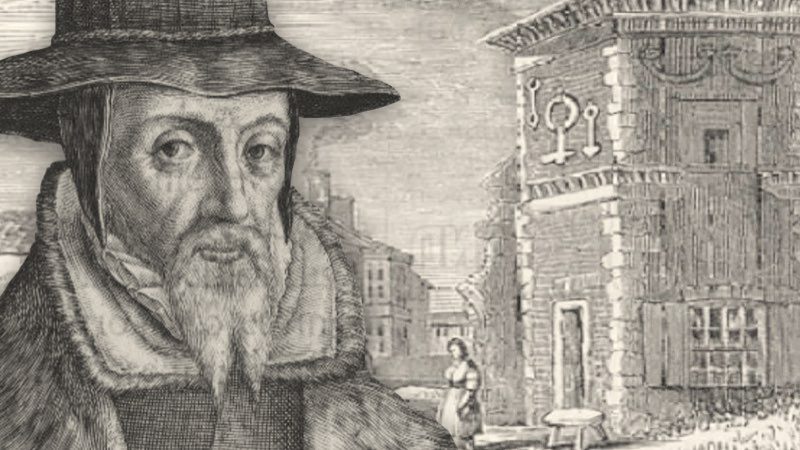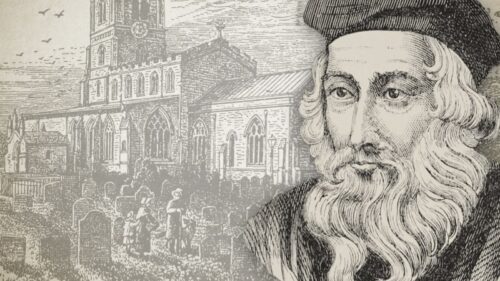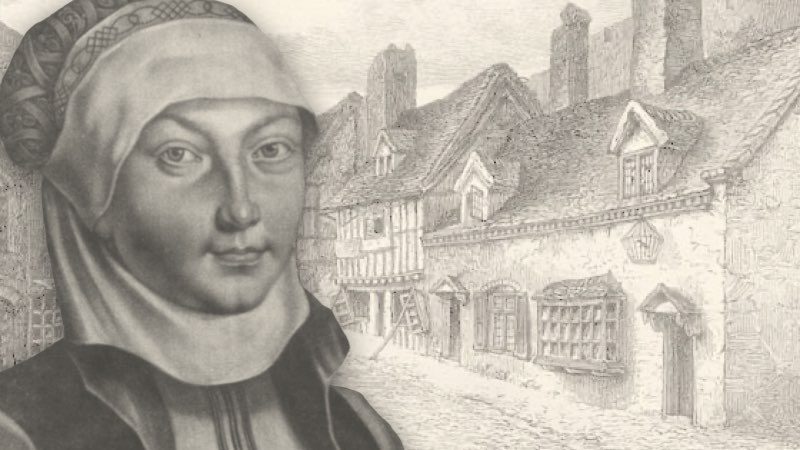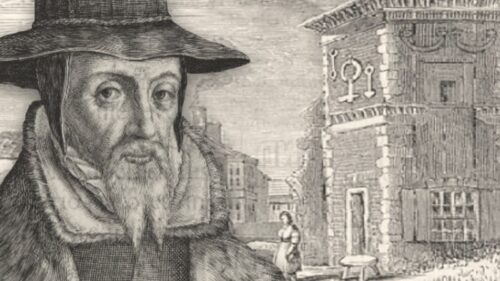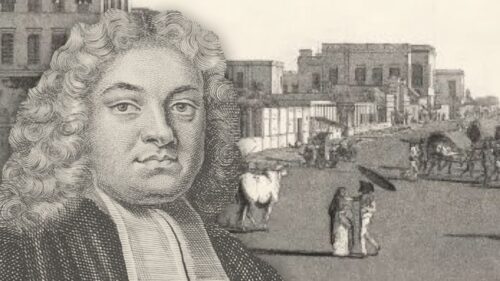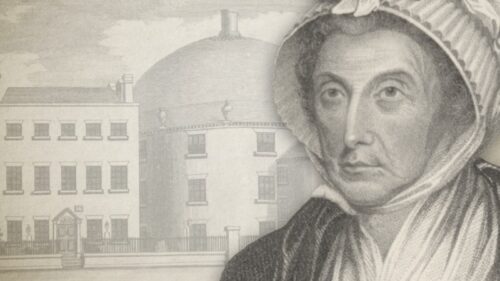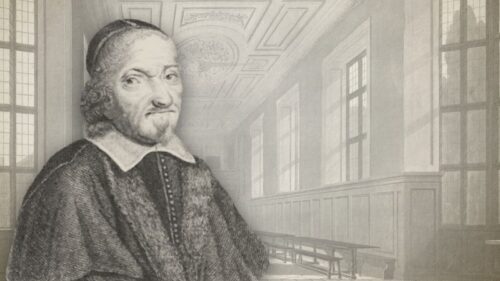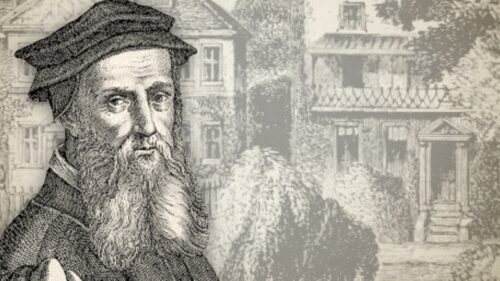George Ella
George M. Ella, born February 1939 in Yorkshire, England, has lived most of his life on the European Continent. He is a retired Senior Civil Servant formerly employed in teaching, post-graduate teacher-training, chairing examination boards and curricula work. He holds degrees from London, Hull, Uppsala, Essen, Duisburg and Marburg universities with doctorates in English Literature and Theology. Dr. Ella has written regularly since the seventies for a number of magazines and newspapers and published numerous books on Church History, including biographies of William Cowper, William Huntington, James Hervey, John Gill, Augustus Montague Toplady, Isaac McCoy and Henry Bullinger besides works on doctrine and education. He is currently finishing the third volume of his series 'Mountain Movers'; a biography of John Durie; a work on Law and Gospel and further study material for the Martin Bucer Seminar. Dr. Ella is still internationally active as a lecturer and is a Vice-President of the Protestant Reformation Society. He is keenly interested in missionary work and has written on the spread of the Gospel amongst the Same people of Lapland, the people of India and the Native Americans. This present volume follows Dr. Ella's 'The Covenant of Grace and Christian Baptism', also published by the Martin Bucer Seminar. George Ella is married to Erika Ella, nee Fleischman, a former government administrator, and they have two sons Mark (41), Director of a Polytechnic College in Bremerhaven and Robin (39), Leading Senior Physician in a newly-built Geriatric and Psychiatric clinic in Dessau.
George Ella on Doctrinal Matters
George Ella's Biographical Sketches
-
John Foxe (1517-1587): The Acts and Monuments Of The Church
Born at the birth of the Continental Reformation, one of the most illustrious figures in the English and Continental Reformation is that of John Foxe, the martyrologist. Few Reformers had his overall grasp of Biblical theology and church history and few were as all-round as he in applying Christian virtues to every sphere of everyday life. Foxe was born in Boston, Lincolnshire in 1517, the very year that Luther nailed up his ninety-five theses to the door of Wittenberg’s Schlosskirche. We know little of his family background apart from the fact that his father died when he was an infant and his mother soon remarried. Foxe was tutored by his step-father until he entered Brazennose College, Oxford at the age of sixteen. At this time,…
-
Katharina Luther (1499-1552): The Morning Star Of Wittenberg
They say that behind every successful man there is a woman; the point being that the man would have been less a man without his wife. This piece of earthly wisdom is rarely applied to Martin Luther. The German Reformer is invariably depicted as “The Monk Who Changed the World”; the idea being that ingredients of Reform are to be found in cloistered, celibate seclusion. Such a conception might suit Rome but it is foreign to Biblical thinking. The alarming fact is that Luther’s critics, of whatever category, often appear to be blissfully unaware that Luther did his best work as a happily married man. Nick-names often reveal traces of character hidden by lexical nomenclature. Any student of Luther needs to notice how he addressed…
-
John Chamberlain: And His Exemplary Missionary Success In India
Baptist missionary John Chamberlain (1777-1821) and his wife were called to India before the Baptist Mission Society (BMS) there had been able to organise itself for practical missionary work. There had thus been very few converts prior to their arrival, especially compared with the work of former and contemporary missionaries in India which very quickly gained true converts in large numbers. Only Dr John Thomas, one of the first Baptists, appeared to be pulling his weight in the early days of the mission but that often proved disastrous as Thomas could not handle money though his preaching gained the first mission converts amongst the Portuguese and Indians. A good number of thriving churches had already been planted in India, including several in the trading towns…
-
John Howard: The Prisoner’s Friend
Baron Donald Soper is remembered for his London Hyde Park and Tower Hill soap-box campaign for a social gospel and his claim that Christians neglected the poor and needy. Whether this claim was just or not, Christians always need to be reminded that social responsibilities go hand in hand with practical religion. As James says (1:27), spotless saints are social workers. Seen from a brighter point of view, since the days of Ulrich Zwingli and Henry Bullinger, whose preaching served to ban poverty in their cantons, Reformed Christians have emphasised their social responsibilities to a high, but not over-balanced, degree. Indeed. from the sixteenth century to our present day evangelical Christians have shown what true religion is according to James, producing such social reformers as…
-
Matthew Parker (1504-1575): Cleaning Up After Mary
Matthew Parker was the first Reformed Archbishop of Canterbury after the Marian persecutions ended. His task was far from easy as Mary’s tyranny and popish superstitions had left a dirty stain on the entire country. Parker’s person, work, testimony and deep learning, under Providence, enabled England to sweep away the past and embark on a veritable Golden Age for the Church which lasted throughout Elizabeth’s and James’ reigns until brought to a halt in the middle of the following century. I have chosen the term ‘Golden Age’ carefully, not so as to deny the many problems both theological and political that faced England throughout this period but to affirm that hardly any other age since then, including even the Great Awakenings of the 18th century,…
-
Anne Bradstreet: Poet of Purity
It is an ancient maxim in literary criticism that all poets are liars and poetry provides an escape from the humdrum reality of life into the fantasies of Never-Never Land. Such critics have obviously not studied Anne Bradstreet who ranks with Milton, Herbert and Cowper as a poet of pure joy in contemplating God’s amazing grace vouchsafed to believers in order to combat the lies and errors of fallen mankind. Few poets are as uplifting as Anne Bradstreet because few poets have encountered and shared in spiritual truths as much as she. Thus Puritan John Norton is not exaggerating in the least when he says that if Virgil had been privileged to read the seraphic poems of Anne Bradstreet, he would have committed his own…

